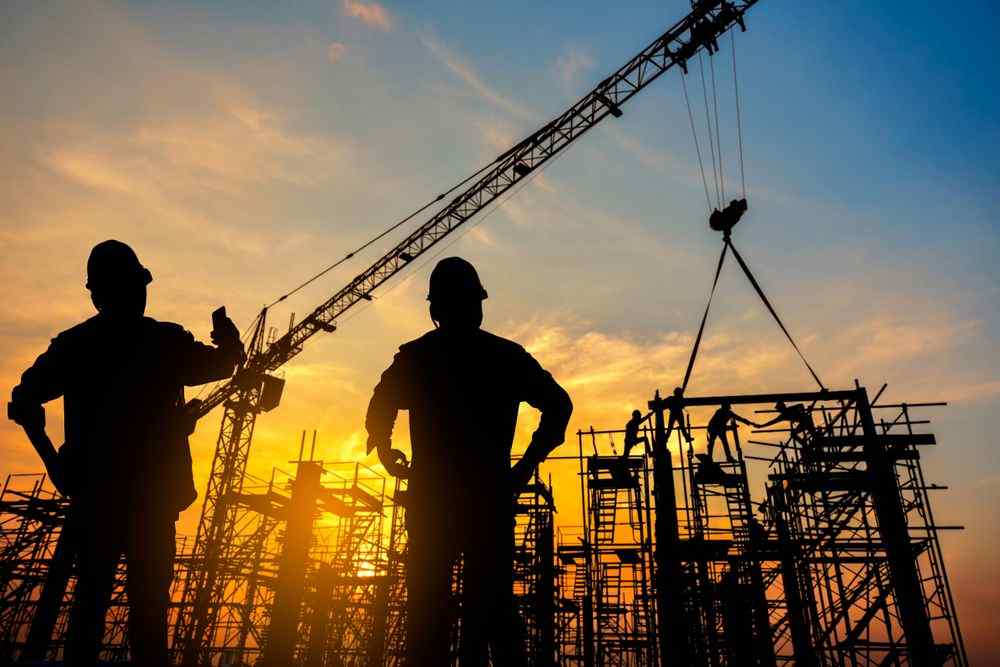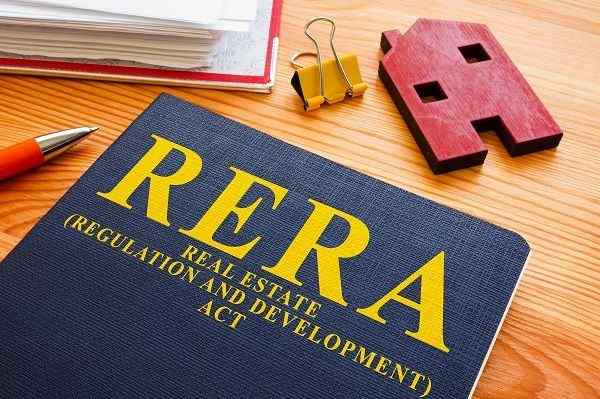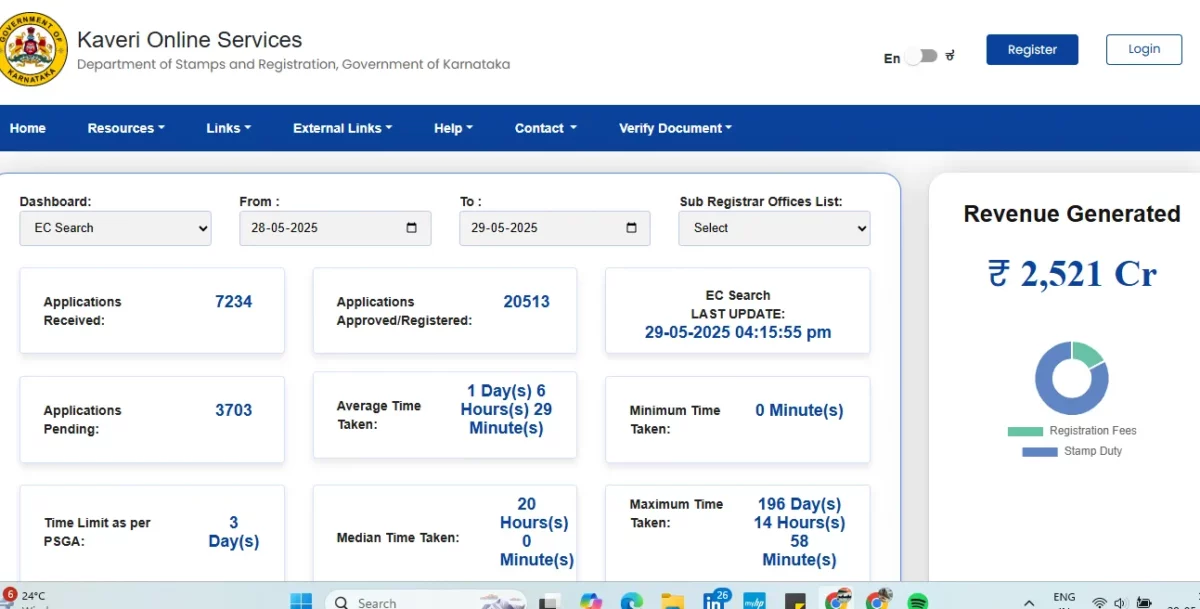Table of Contents
Quality Service Guarantee Or Painting Free

Get a rental agreement with doorstep delivery

Find the BEST deals and get unbelievable DISCOUNTS directly from builders!

5-Star rated painters, premium paints and services at the BEST PRICES!
Loved what you read? Share it with others!

Demystifying Defect Liability Period in Construction Contracts
Table of Contents
Defects are an inevitable part of any construction project, regardless of how well-planned and executed it is. To ensure that these defects are identified and rectified in a timely manner, most construction contracts include a Defect Liability Period (DLP). In India, the DLP is a legal requirement under the Indian Contract Act, 1872, and is commonly used in construction contracts. Buying a home is one of the most significant investments that an individual or family can make. However, it can also be a stressful experience, particularly if there are defects or issues with the construction of the home. To protect homebuyers, the Defect Liability Period (DLP) is a legal requirement in India for construction contracts. In this blog, we will explore how the DLP protects homebuyers in India.
What is the Defect Liability Period?
The Defect Liability Period (DLP), also known as the Rectification Period, is a specified period after the completion of a construction project during which the contractor is responsible for rectifying any defects or faults that may arise. The DLP is typically stated in the contract, and the duration of the DLP varies depending on the size and complexity of the project. In India, the DLP is usually between 12 to 24 months.
Clause 14 (3) of the Real Estate (Regulation and Development) Act, 2016 (RERA) states that a developer must rectify any structural or workmanship defect brought to their attention by the homebuyer within five years from the date of possession. The developer is obliged to rectify the problem within 30 days of being notified, without any additional charges.
Quality Service Guarantee Or Painting Free

Get a rental agreement with doorstep delivery

Find the BEST deals and get unbelievable DISCOUNTS directly from builders!

5-Star rated painters, premium paints and services at the BEST PRICES!
In case the developer fails to rectify the issue, the buyer is entitled to receive compensation as per the provisions of the Act. This home warranty period has been increased to five years from two years previously, providing buyers with greater protection and reducing the hassle and cost of running after developers to fix damages.
What does the Defect Liability Period cover?
The DLP covers any defects or faults that arise as a result of the contractor's work, materials or equipment. These defects may include issues with the design, workmanship, materials, or any other aspect of the construction project that the contractor is responsible for.
During the DLP, the contractor is required to inspect the completed work and ensure that it meets the specifications outlined in the contract. If any defects are identified, the contractor is obligated to repair or replace the defective work, materials or equipment.
It is important to note that the DLP does not cover any defects or faults that arise as a result of normal wear and tear, or as a result of external factors such as natural disasters, accidents, or vandalism.
What happens if defects are not rectified during the Defect Liability Period?
If the contractor fails to rectify any defects or faults during the DLP, the client has the right to take legal action against the contractor. The client may seek compensation for any damages or losses that result from the defect or fault.
In addition, the contractor's failure to rectify defects during the DLP may impact their reputation and future business opportunities. Therefore, it is in the contractor's best interest to rectify any defects or faults in a timely and efficient manner.
How is the Defect Liability Period enforced in India?
The DLP is a legal requirement under the Indian Contract Act, 1872. This means that the DLP is enforceable in a court of law, and the client has the right to take legal action against the contractor if the defects are not rectified within the specified period.
To enforce the DLP, the client must provide written notice to the contractor identifying the defects or faults. The contractor is then required to rectify the defects or faults within a reasonable period. If the contractor fails to rectify the defects or faults within a reasonable period, the client may take legal action against the contractor.
[widget_homeLoan_checkEligibility_form]DLP: Protection to the Home Buyers
The Defect Liability Period clause under RERA is expected to have a positive impact on the real estate industry in India. This clause will not only enhance developers' reputation for transparency and best practices but also offer a secure environment to homebuyers and investors.
A home warranty makes it mandatory for developers to rectify any structural defects even after the property ownership has been transferred, thereby safeguarding the interests of buyers. This provision aligns with international property market practices and is expected to boost consumer confidence in the Indian real estate market.
Defect Liability Period (DLP) Under RERA

The Karnataka Real Estate (Regulation and Development) Rules, 2017 do not specifically define "defect liability/structural defect", other state rules provide clarification.
The Telangana State Real Estate (Regulation and Development) Rules, 2017 define it as any structural or workmanship defect or deficiency in services that are brought to the notice of the promoter by the buyer within five years from the date of possession.
The promoter is then required to rectify the defect without charging any additional fees. However, certain exclusions are made, such as equipment with manufacturer guarantees, fittings subject to wear and tear allowable structural deformations, and terms of the work subject to wear and tear.
According to the Haryana Real Estate (Regulation and Development) Rules, 2017 (draft rules), "defect liability/structural defect" refers to any actual physical damage or faults found in the load-bearing components of an apartment or building that can impact its strength and stability. This can include issues caused by design flaws, substandard workmanship, materials used, significant masonry cracks, and non-compliance with regulatory codes by the developer. It is essential to identify and address such defects promptly to ensure the safety and well-being of occupants and to avoid legal consequences.
Benefits of Defect Liability Period for Homebuyers

The DLP provides significant protection for homebuyers. First and foremost, it ensures that any defects or issues with the construction of the home are identified and rectified in a timely manner. This means that homebuyers can have peace of mind, knowing that their new home is constructed to a high standard.
In addition, the DLP protects home buyers financially. If defects or issues arise during the DLP, the contractor is responsible for rectifying them at their own expense. This means that homebuyers are not required to pay for any repairs or replacements that may be necessary.
Furthermore, the DLP protects homebuyers from unscrupulous contractors who may cut corners or use substandard materials during construction. If defects or issues arise during the DLP, the contractor is required to rectify them, regardless of the cause. This ensures that homebuyers receive a quality product and that contractors are held accountable for their work. The defect liability period in different countries varies, but in some countries, it can be as high as ten years. In India, RERA has set the defect liability period to five years, which has made developers more responsible and has led to an increase in property values.
Homebuyers are willing to pay a premium for properties that come with warranties as they offer a secure environment and save them from incurring repair costs due to construction faults. Warranties enhance homebuyers' trust in the developers and improve the overall real estate market system.
How can homebuyers ensure that the DLP is included in their construction contract?
To ensure that the DLP is included in their construction contract, homebuyers should work with a reputable builder or developer. Reputable builders and developers will typically include the DLP in their standard contracts, and they will be transparent about the terms of the contract.
Homebuyers should carefully review the contract before signing and ensure that they understand the terms of the DLP. If there are any questions or concerns, homebuyers should seek legal advice before signing the contract.
What happens if defects are not rectified during the DLP?
If the contractor fails to rectify any defects or faults during the DLP, homebuyers have the right to take legal action against the contractor. Homebuyers may seek compensation for any damages or losses that result from the defect or fault.
In addition, the contractor's failure to rectify defects during the DLP may impact their reputation and future business opportunities. Therefore, it is in the contractor's best interest to rectify any defects or faults in a timely and efficient manner.
How Can NoBroker Help?
The Defect Liability clause in the Real Estate (Regulation and Development) Act, 2016 (RERA) will make developers more cautious about the quality of construction in their projects. The clause ensures that any structural defects found within five years of possession will be rectified by the developer without any additional charge. This provision will protect the interest and investment of homebuyers and offer them a secure environment to invest in the real estate market.
In case you are facing any issues related to the Defect Liability clause or any other legal matter related to real estate, NoBroker can help you connect with legal experts specialising in real estate laws. They can offer you guidance and support to resolve any legal disputes that may arise with your developer or builder. NoBroker can also help you with property documentation and registration, ensuring a hassle-free real estate transaction.
FAQ's
A: The Defect Liability Period, also known as the home warranty, is a clause in the Real Estate (Regulation and Development) Act, 2016 (RERA), that makes the developer responsible for fixing any structural defects in a property for five years from the date of possession.
A: The Defect Liability Period covers structural defects in a property such as cracks in walls or ceilings, water seepage, electrical or plumbing issues, and any other defects that may affect the safety or stability of the building.
A: Any defects in a property must be reported to the developer within a reasonable timeframe, which is usually within 30 days from the date of discovery.
A: If the developer fails to fix the defects within the Defect Liability Period, the aggrieved party is entitled to compensation for the inconvenience caused and may seek legal action against the developer.
A: Yes, the Defect Liability Period applies to all types of properties, including apartments, villas, and commercial properties, that have been purchased after the implementation of the RERA Act.
Recommended Reading

Doctrine of Adverse Possession: What It Means and How to Claim Property Rights in 2025
May 28, 2025
89163+ views

EC Online Bangalore: Importance, Online Application and Status Check in 2026
June 1, 2025
67174+ views

How to Apply Encumbrance Certificate in Tamilnadu Online and Offline 2025
May 1, 2025
43687+ views

Encumbrance Certificate Karnataka - Online and Offline Application Process in 2025
January 2, 2025
43409+ views

Everything You Need to Know About NOCs for Property Transfer in India
January 31, 2025
36084+ views
Loved what you read? Share it with others!
Most Viewed Articles

Franking Charges Explained: Meaning and Benefits
January 31, 2025
1115277+ views

Society Maintenance Charges : Meaning, Cost, Types and Calculation
January 31, 2025
192900+ views

BBMP E-Khata Registration process for property owners in Bangalore, Karnataka in 2025
March 19, 2025
145603+ views

Daughter's Right in Fathers' Property - the Law is Finally Equal for both Genders?
June 1, 2025
132013+ views

Rectification Deed Format and Process in India 2025
June 1, 2025
127514+ views
Recent blogs in
How To Register a Rent Agreement Online In Gujarat: Process, Documents and Fees in 2026
January 19, 2026 by Ananth
What is Registered Lease Agreement: Meaning, Legal Validity, Benefits and Online Registration
January 19, 2026 by Krishnanunni H M
What Is a Room Rental Agreement: Meaning, Purpose and Importance in 2026
January 12, 2026 by Kruthi









 Full RM + FRM support
Full RM + FRM support
Join the conversation!